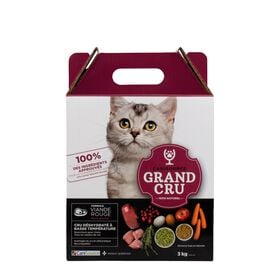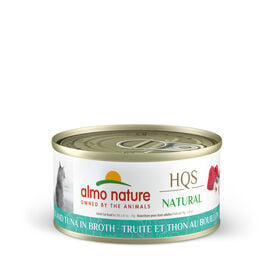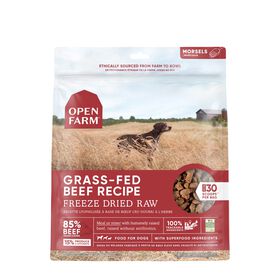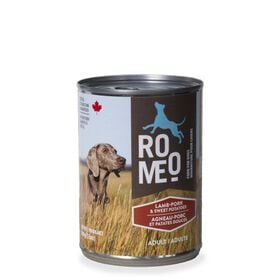Premium, grain-free, holistic, natural, specialized... Reading the labels on bags of food can be intimidating and confusing. How can you make an informed choice when you're concerned about your pet's health? Here are a few tips to help you choose the right food for your cat or dog and help them maintain good overall health.

What does overall health means?
Overall health means balancing the various aspects of your pet’s life, including their level of comfort, number of outings, amount of physical exercise, education, affection and food. The latter plays a vital role in your pet’s overall health.
Healthy ingredients can contribute to:
- improved vitality
- longer life
- a nicer coat
- better digestion
- optimal health
A few basic definitions
They'll help you understand what you're reading on your pet's food bags.
Functional ingredients
They have a specific, specialized function and are incorporated in small quantities into your pet's food.
Some promote a healthy digestive system, others keep the immune system strong. Others promote robust and strong joints.
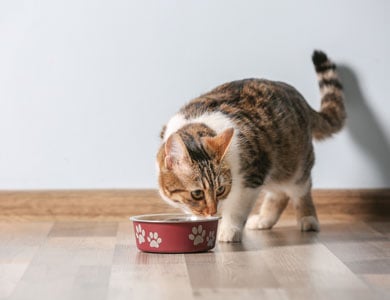
Natural ingredients
A natural food provides the combined benefits of its ingredients.
It also relies on various ingredient sources, consisting of whole grains, fruits and vegetables, and the highest quality protein sources. Be aware, however, that this is a non-specific term whose use is not regulated for pet food.
Holistic nutrition
The word holistic means whole, full, and entire.
A holistic diet, therefore, provides the combined benefits of ingredients carefully selected for their particular benefits to the animal's overall health, rather than relying on the presence of one or two star elements. Like the term natural, there are no definitions or regulations for holistic kitty or dog food.
Grain-free food
A grain-free diet comprises ingredients such as potatoes, peas, tapioca or sweet potatoes to meet nutritional requirements.
Avoiding grains at all costs or opting for so-called natural foods is unnecessary. The important thing is to make sure it's right for your pet's needs. It's essential to find out about the manufacturer and the tests that have been carried out on the food.
Also read: What are your pet's nutritional requirements?
Three benefits of high-quality food
Providing your pet with a good diet will significantly influence their overall health.
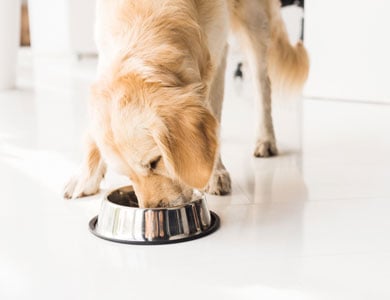
Improved digestion
When a pet is fed a quality diet, stools are less frequent, less voluminous and less smelly.
Healthy coat
Your pet's skin and coat appearance is generally a good indicator of their overall health and the outward expression of their diet. It will also be influenced by the environment in which your pet lives (electric heating, grooming, etc.).
Vitality
A high-quality diet helps keep the heart, immune system, teeth, joints, etc., in good working order. Pets are strong and full of vitality when these organs are healthy.
How to recognize high-quality foods
Here's how to make the best possible choice for your pet when you're standing in front of the shelves.
Analyze the ingredient list
It's essential to read the complete list of ingredients very carefully to be able to identify those that will help your pet stay in excellent health. However, certain marketing strategies can distort your perception of ingredient quality.
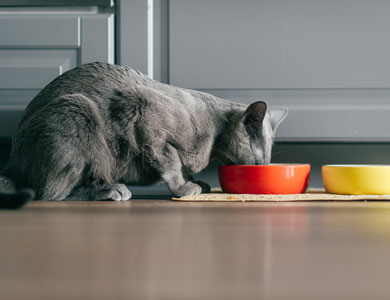
For example, the term by-products is often wrongly associated with low-quality, poorly digestible ingredients, whereas it can be used to designate liver, a nutrient-rich food. Similarly, the term chicken flour indicates that the product has been dehydrated before being incorporated into the recipe. As ingredients are listed by weight, it's easier to find chicken with water at the beginning than chicken flour. Hence the importance of reading ingredients carefully!
Choosing the right price-quality ratio
High-quality foods may initially seem expensive. However, based on the latest nutritional research, their compositions promote excellent health, maximize longevity and reduce illness-related care costs.
Finally, choosing the right food for your cat or dog requires a little research on your part. By carefully reading your pet's food ingredients, you're helping to ensure his overall health. You're allowing yourself to live with your pet for as long as possible and in the best possible condition!
Also read: How to choose the right food for your cat or dog?


